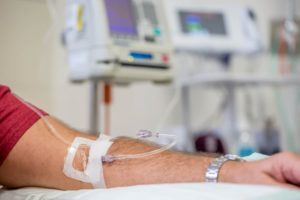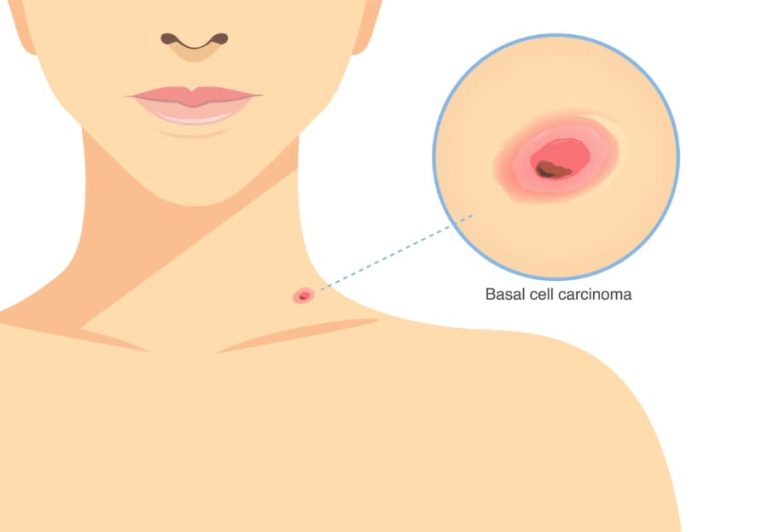
What Is Immunotherapy – and Is It Right for You?
If you or a loved one has been diagnosed with cancer, doctors can choose from many treatments to provide the best care possible for each
HIPAA Alert: Potential Data Breach Learn More
Questions on Oncology, Hematology and/or Infusion Clinical Services due to COVID-19 Crisis – CALL 833-698-1623
Important Information for Our Patients Regarding the Coronavirus.
RCCA Providing Area Cancer Patients with Access to Care During Coronavirus Outbreak
RCCA Offering Patients Virtual Visits During Coronavirus Pandemic
Skin cancer does not always cause symptoms, particularly in its earliest stages, but when symptoms do occur, they can take many forms. Knowing which symptoms to look for is the first step toward prompt identification of skin cancer and obtaining treatment to prevent its further development or spread. The oncologists specializing in skin cancer at Regional Cancer Care Associates (RCCA) draw on the latest evidence-based therapies to treat patients diagnosed with melanoma and advanced forms of other types of skin cancer. With offices in New Jersey, Connecticut, Maryland, and the Washington, D.C., area, Regional Cancer Care Associates provides personalized and world-class treatment to people with cancer and hematologic disorders.
With skin cancers, there may be signs that warrant concern, such as large, multi-colored moles or lesions with asymmetrical borders that change in shape, color, or size. However, other indicators of the disease can vary depending on the type of skin cancer present. Here are some symptoms associated with different types of the disease:
Basal cell carcinoma is the most common form of skin cancer. It mainly develops on areas of the skin exposed to the sun, such as the hands, face, arms, legs, and ears. In most instances, it is slow-growing and non-life-threatening. Basal cell carcinoma can appear as:
Squamous cell carcinoma also typically forms on areas of the skin frequently exposed to the sun, but it can also appear in mucus membranes and in genital areas. It often presents as a firm pink or red node on the skin or a scaly lesion that may itch and bleed.
Melanoma may develop on any part of the body, even on internal organs. Symptoms of this disease include:
Rarer types of skin cancers also have distinct signs. Indications that a patient has one of the two following skin cancers include:

Appropriate use of sunscreen, hats, and other clothing; periodic self-examination of the skin; and regular doctor visits are key components to the prevention and early identification of skin cancer. It also is important to recognize that certain factors may increase the risk of developing skin cancer, including:
The optimal form of skin cancer treatment depends on factors including the type of cancer and its stage. Basal cell carcinomas and squamous cell carcinomas typically are treated by dermatologists and dermatologic surgeons, although medical oncologists may provide treatment for very advanced forms of those conditions, Early stages of melanoma also may be treated by dermatologic surgeons, although medical oncologists and sometimes radiation oncologists often are involved in managing melanoma.
With Stage 0 melanoma, the earliest form of the cancer in which malignant cells are contained to the skin’s outer layer, or epidermis, minimal surgery or radiation therapy may be sufficient to treat the disease.
With stages I and II melanoma, medical oncologists may prescribe immunotherapy, which uses medications that harness the power of the body’s immune system to identify and attack cancerous cells. Oncologist also may prescribe targeted therapy, which uses state-of-the-art drugs that pinpoint specific mutations in cancerous cells while leaving healthy cells unaffected. These options are all available at Regional Cancer Care Associates.
To treat Stage III skin cancer, when melanoma has reached nearby lymph nodes at diagnosis, doctors may make use of a combination of therapies, drawing on options such as surgery, chemotherapy, immunotherapy, targeted therapy, and radiation therapy. Clinical trials may also be available at this stage. A diagnosis at Stage IV will likely require surgery or chemotherapy along with immunotherapy; again, clinical trials may be a good option for this advanced stage of melanoma.
Patients with melanoma or advanced forms of other skin cancers will find experienced, compassionate oncologists and the latest therapies at Regional Cancer Care Associates. Our team treats a wide variety of cancers and blood disorders at multiple locations in New Jersey, Connecticut, Maryland, and the Washington, D.C., area. Contact us or request an appointment today to learn more about skin cancer treatment options.
From empowering you with information and tools to fully understand skin cancer, to treating it quickly and comprehensively, RCCA is committed to your care. As one of the nation’s largest cancer physician networks, we have the reach, the resources and the localized accessibility to treat your very individualized needs with top-quality care and unfailing compassion.
For more information, or to schedule an appointment, call (844) 346-7222. You can also schedule an appointment by calling the RCCA location nearest you.

If you or a loved one has been diagnosed with cancer, doctors can choose from many treatments to provide the best care possible for each

Share on facebook Share on twitter Share on linkedin Share on email Share on print East Coast residents are no strangers to winter weather, and those

Share on facebook Share on twitter Share on linkedin Share on email Share on print The New Jersey average of 22.2 new cases of melanoma
When standard cancer treatments aren’t providing the results you want, clinical trials may offer hope. Our physicians use clinical trials to study new treatments, helping transform cancer care for the better. You can enroll in a clinical trial to try groundbreaking treatment plans at zero cost to you.

Regional Cancer Care Associates is one of fewer than 200 medical practices in the country selected to participate in the Oncology Care Model (OCM); a recent Medicare initiative aimed at improving care coordination and access to and quality of care for Medicare beneficiaries undergoing chemotherapy treatment.
Patients with melanoma or advanced forms of other skin cancers will find experienced, compassionate oncologists and the latest therapies at Regional Cancer Care Associates. Our team treats a wide variety of cancers and blood disorders at multiple locations in New Jersey, Connecticut, Maryland, and the Washington, D.C., area. Contact us or request an appointment today to learn more about skin cancer treatment options.